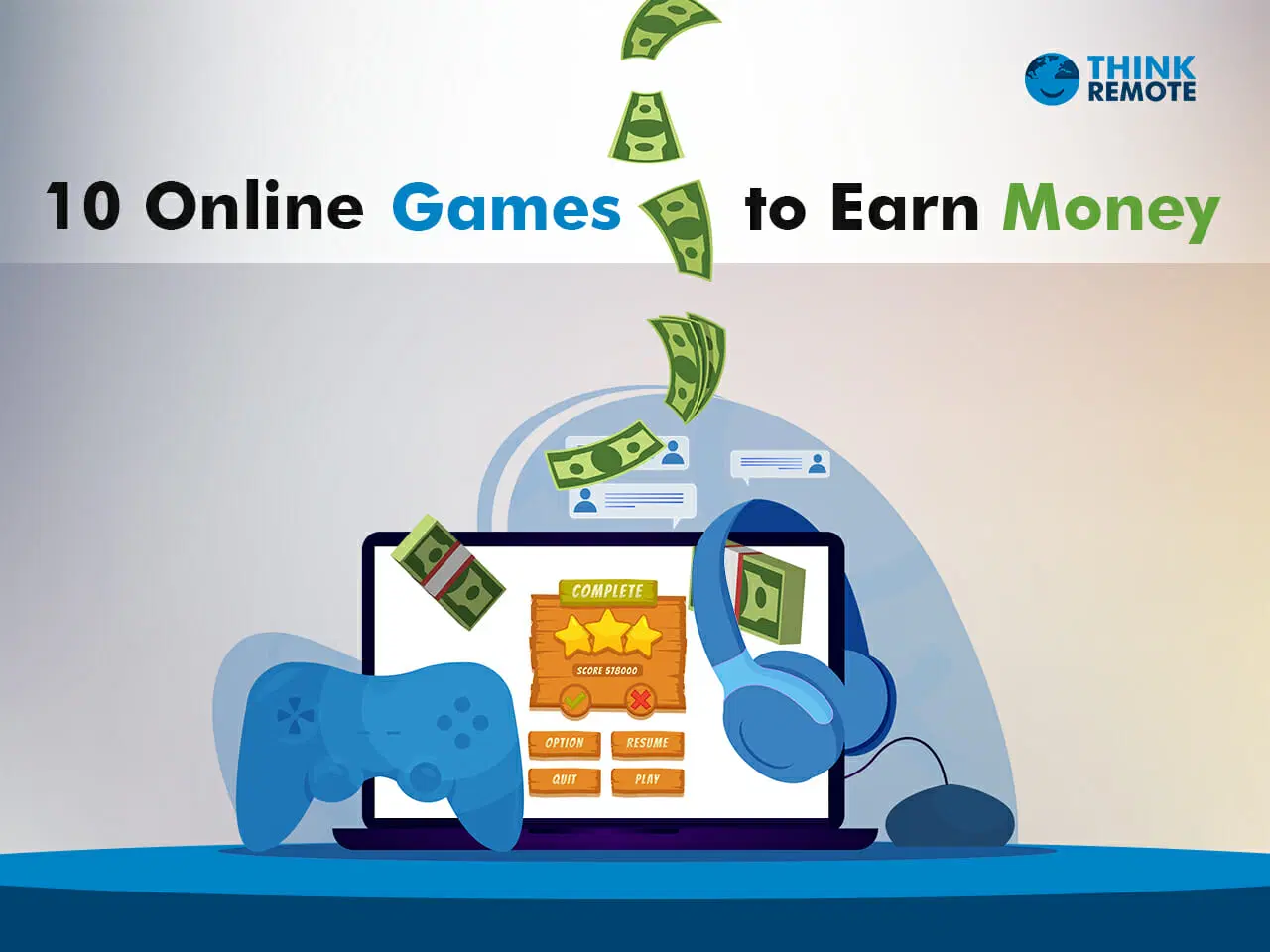Exploring the Best Play to Earn Games for Earning Rewards and Fun
Exploring the Best Play to Earn Games for Earning Rewards and Fun
Blog Article
Just How Play-to-Earn Gamings Are Transforming the Pc Gaming Industry

Comprehending Play-to-Earn Mechanics
The play-to-earn version has actually become an advanced concept within the video gaming sector, basically modifying the relationship in between gamers and the video games they engage with. This design enables players to earn tangible rewards, commonly in the kind of cryptocurrencies or non-fungible tokens (NFTs), through their in-game tasks. Unlike traditional pc gaming structures that generally monetize with registration charges or one-time purchases, play-to-earn video games incentivize player involvement by directly connecting gameplay achievements to real-world value.
At the core of play-to-earn auto mechanics is the combination of blockchain technology, which ensures openness and provable ownership of in-game properties. Gamers can acquire, offer, or trade these properties in decentralized industries, encouraging them with financial company formerly undetected in standard video gaming atmospheres. Each player's payment to the game ecosystem-- be it with experienced play, calculated trading, or neighborhood involvement-- improves the general video gaming experience while offering them an opportunity to generate income.
As gamers invest time and sources, they not just deepen their involvement with the video game however also foster a dynamic economic climate that mirrors their cumulative initiatives (play and earn rewards). This makeover of gameplay right into a monetizable endeavor is reshaping both gamer motivation and game design
Financial Influence on Gamers

Moreover, play-to-earn designs democratize access to financial advantages. Players from varying socio-economic histories can participate and potentially earn substantial revenue, linking spaces that exist in standard job markets. This paradigm change cultivates economic independence, especially in areas where employment possibilities may be restricted.
Furthermore, the intro of virtual economic climates allows gamers to construct wealth via critical financial investments in in-game possessions, which can value gradually. This has brought about the appearance of a new class of gamers that approach play-to-earn as a significant income-generating task, usually resulting in the reinvestment of earnings right into the gaming ecological community itself. Inevitably, the economic effect on players is extensive, as they browse a landscape where leisure and resources merge.
The Role of Blockchain Technology
What makes blockchain innovation a cornerstone of play-to-earn video games is its capability to provide transparency, decentralization, and security. By utilizing a dispersed journal system, blockchain guarantees that all deals within the video game are taped in an unalterable fashion, permitting players to verify ownership of in-game properties without relying upon a main authority. This transparency cultivates depend on among players, as they can individually confirm the scarcity and provenance of digital things, enhancing their value.
Moreover, blockchain technology equips gamers through decentralization, allowing them to engage in peer-to-peer deals. Players are their explanation no much longer restricted to in-game economies regulated by designers; instead, they can trade, sell, or rent their assets freely in open marketplaces. This shift not only increases the general liquidity of digital properties but additionally motivates more significant player involvement, as individuals can straight gain from their time and effort purchased the game.
In addition, blockchain assists in the production of smart contracts, which automate numerous in-game processes, from benefits distribution to administration mechanisms. play and earn rewards. This technology decreases the risk of fraud and ensures justice, more strengthening blockchain's indispensable function in the advancement of play-to-earn pc gaming
Objections and challenges
Regularly, play-to-earn games encounter significant obstacles and objections that can impede their development and acceptance within the wider pc gaming neighborhood. One primary issue is the possibility for a speculative bubble, where the worth of in-game properties can vary considerably, bring about economic losses for players. This volatility weakens the stability that typical pc gaming settings commonly provide.
Moreover, the combination of blockchain technology usually raises inquiries regarding environmental sustainability. The power usage linked with particular blockchain networks has actually sparked disputes pertaining to the eco-friendly influence of these video games. Critics argue that the carbon footprint created by play-to-earn systems could discourage eco-conscious gamers.
Additionally, there are issues concerning availability and inclusivity. Many play-to-earn games call for players to spend considerable ahead of time capital to obtain required assets, developing barriers for those with limited monetary resources. This design can inadvertently produce a divide between wealthier players and those that can not pay for to take part.
Future Patterns in Pc Gaming
As the gaming industry continues to develop, a number of future trends are arising that guarantee to improve the landscape of play-to-earn video games and past. One considerable trend is the boosting combination of blockchain innovation, which improves transparency and security in purchases. This will likely lead to greater trust amongst gamers, motivating larger fostering of play-to-earn designs.
Furthermore, the rise of non-fungible symbols (NFTs) is established to reinvent digital possession, enabling players to absolutely possess in-game possessions. This change will certainly not only equip players however likewise develop brand-new economic opportunities within the digital ecological community. The convergence of video gaming with other sectors, such as social media and decentralized money (DeFi), is expected to cultivate cutting-edge gameplay auto mechanics and monetization techniques.
Moreover, improvements in expert system and artificial intelligence will certainly allow extra individualized pc gaming experiences, dealing with specific player choices and enhancing interaction. The expanding focus on community-driven development will likely influence video game design, as gamers increasingly take part in forming their gaming settings. Jointly, these trends suggest a transformative future for the gaming market, where play-to-earn designs will certainly play a main role in redefining player communication and worth production.
Conclusion
In final thought, play-to-earn games represent a substantial change in the gaming industry, promoting financial opportunities with visit site ingenious mechanics that leverage blockchain innovation. This version not only democratizes access to monetary benefits for players from numerous socio-economic backgrounds but likewise motivates neighborhood interaction and empowerment. Regardless of facing challenges and objections, the potential for future improvements suggests that play-to-earn games will certainly remain to form the gaming landscape, offering new methods for wide range production and gamer participation.
The introduction of play-to-earn video games represents this hyperlink a considerable shift in the gaming sector, improving the connection between players and the electronic economic climate (play and earn rewards).The play-to-earn design has emerged as an advanced concept within the pc gaming sector, fundamentally altering the partnership in between players and the video games they involve with. Unlike typical pc gaming structures that commonly monetize via membership fees or one-time purchases, play-to-earn video games incentivize player engagement by straight connecting gameplay success to real-world value
These cutting-edge gaming systems equip gamers to create real-world earnings via their in-game tasks, thereby changing the standard idea of gaming from a mere activity into a viable financial chance. Despite encountering criticisms and obstacles, the capacity for future improvements suggests that play-to-earn video games will certainly continue to form the gaming landscape, providing new opportunities for wealth creation and gamer participation.
Report this page